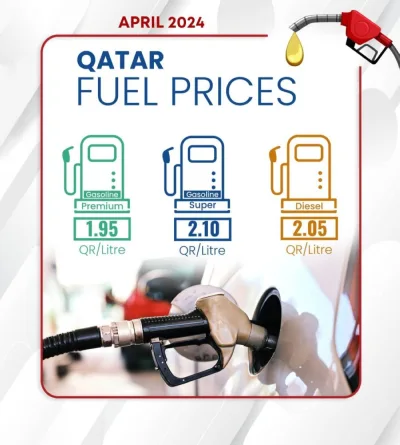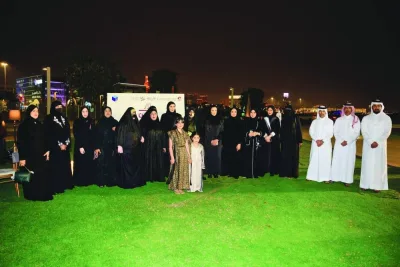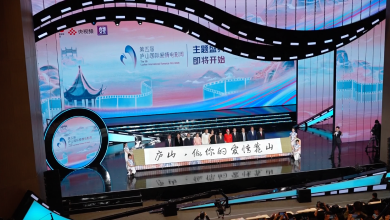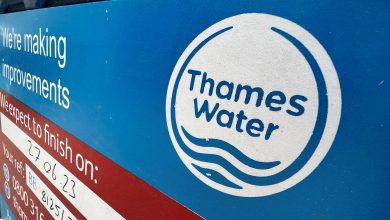SAF mandate targets 10% of jet fuel in flights from UK by 2030

The SAF mandate, which, subject to parliamentary approval, will come into force in January 2025 and be one of the first in the world to be put into law, assuming it passes. It follows the world’s first commercial 100% SAF transatlantic flight taking off from Heathrow in November – matched by up to £1mn in government investment.
Following extensive consultations with the industry, the government has committed to ambitious but achievable targets that will see around 1.2mn tonnes of SAF supplied to the UK airline industry each year – enough to circle the globe 3,000 times.
In the UK, the SAF industry is estimated to add over £1.8bn to the economy and create over 10,000 jobs across the country.
This comes following £135mn of recent funding allocated through the Advanced Fuels Fund, supporting the growth of 13 groundbreaking SAF projects across the country.
SAF is much more expensive than traditional jet fuel in the immediate term, but the government claims it is ensuring decarbonisation and doesn’t come at the expense of consumers. This plan is part of an approach to ensure that the rationing of flights through ‘demand management’ is ruled out.
The plan includes a review mechanism to help manage prices and minimise the impact on ticket fares for passengers. The government also has the power to change key limits within the mandate to block higher price rises in the case of SAF shortages – keeping the impact on consumers to a minimum.
The ministers state that, sufficient SAF is available and any increases in air fares as a result of SAF will fall well within the range of usual fluctuations in prices and the government has plans in place to prevent any major hikes.
Transport Secretary Mark Harper said: “Sustainable aviation fuel protects the future of UK aviation, the thousands of British jobs that depend on it, and the holidays and business travel flights that we all rely on.
“As part of our plan to grow the economy, the measures announced today will give both UK aviation and the UK SAF industry the certainty they need to keep creating skilled British jobs while giving passengers the freedom to continue travelling by air in a way that’s fit for the future.”
SAF produces up to 70% less carbon emissions than the traditional fossil fuels used in most commercial flights.
There’s significant progress being made across Europe, and airlines are following the likes of International Airlines Group (IAG) which recently announced its largest SAF purchase agreement to date, with e-SAF (power-to-liquid) producer Twelve, which will supply advanced e-SAF made from CO2, water and renewable energy.
Under the terms of the fourteen-year contract, Twelve will supply IAG with 785,000 tonnes of e-SAF to support five European airlines: British Airways, Iberia, Aer Lingus, Vueling and LEVEL.
IAG says the next-generation fuel will reduce lifecycle greenhouse gas emissions by up to 90% versus conventional jet fuel. It’s the first European airline group to announce an e-SAF deal, and the agreement will enable IAG to continue increasing its SAF use of approximately 12% of the world’s supply in 2023.
IAG is one of the world’s largest airline groups with 582 aircraft, directly connecting Europe to 250+ destinations in 91 countries and carrying 115mn+ passengers per year. Its airlines include Aer Lingus, British Airways, Iberia, Vueling and LEVEL. The Group also consists of two additional businesses; IAG Cargo and IAG Loyalty.
Qatar Airways remains the largest shareholder of IAG, with a 25.2% share. Qatar Airways first purchased a stake in IAG in 2015, building it from 10% to 20% over the space of a year.
The deal brings the scale-up of e-SAF, produced using power-to-liquid technology, one step closer to reaching its full potential in the aviation industry. E-SAF does not face feedstock limitations, has a high degree of emissions reduction and has a relatively low land and water-use footprint.
SAF is chemically almost identical to kerosene. It is certified to international standards to ensure it is safe to use in existing aircraft and airports. The feedstocks for these fuels – currently waste materials such as used cooking oil, municipal waste or waste wood – absorb or avoid greenhouse gases before this carbon is recycled into fuel and then used.
E-SAF is a process that converts renewable electricity, water and CO2 into synthetic liquid fuels that can be used in aviation. Twelve, based in Berkeley, California, is considered a leader in carbon transformation and power-to-liquid technology. The company has developed and patented a proprietary process that can produce high-quality synthetic fuels from renewable electricity and CO2. The company is constructing a demonstration plant.
The two companies first began partnering in 2020, when Twelve joined IAG’s Hangar 51 start-up accelerator programme to commercialise Twelve’s technology.
IAG described the new Twelve partnership as “a major step forward” on the journey towards 2030, when IAG has committed as a group to fly with 10% SAF — the first European airline group to set this target. With the deal, IAG has now secured one-third of the SAF needed to reach its 2030 target.
Luis Gallego, IAG’s CEO said: “We have a roadmap to achieve net zero by 2050 including a target to fly with 10% sustainable aviation fuel by 2030. The shortage of sustainable fuel globally continues to be a problem for our industry although innovative companies like Twelve are an important part of the solution.
“This new deal will contribute towards our 2030 SAF target. We would like to see similar projects scale in Europe, and we look forward to working with governments across our key markets to build a SAF industry to deliver jobs, economic growth and a stable supply of SAF.”
Nicholas Flanders, Twelve’s co-founder and CEO said: “We are proud to partner with IAG on this historic deal to advance sustainable aviation with our e-SAF that has up to 90% lower emissions than conventional jet fuel. Our power-to-liquid e-Jet fuel offers industry-leading emissions reduction potential with the added benefits of an abundant feedstock supply and significantly smaller land and water footprints compared to alternative SAF pathways.”
IAG this week announced its largest SAF purchase agreement to date, with e-SAF producer Twelve, which will supply advanced e-SAF made from CO2, water and renewable energy.
The author is an aviation analyst. Twitter handle: @AlexInAir







